DrPresence
Healthcare app / Jan 2021
DrPresence
Proposed dashboard for Doctor App and Consumer App
The final result they presented exceeded expectations – not only was the visual design on point, the user flow designed was also easy to navigate and demonstrated strong user empathy.
- Mr. Quah, CTO of Dr. Presence
Background
INTRO
Dr. Presence is a groundbreaking healthcare app to connect doctors and healthcare consumers to monitor patients’ health progress with no limits to time and location.
With the thoughts of future expansion, the client hopes the initial version of this app will be able to help the following target audience:
- Doctors and healthcare providers
- Chronic Patients and their families
- Caregivers
With a 3-week timeline, my teammates and I put our heads together to help our clients transform their healthcare app from its original wireframe design to a completely new app experience and look.
Aside from leading the user research and usability testing, my role in this project is to make sure the team is on track and manage the project scope/ deliverables as well as our stakeholders.
Heuristic Analysis






We looked at the previous version of wireframes and evaluated their interaction design.
From our analysis, we understood that moving forward we will have to:
1. Make the UI design easy to scan for information
2. Use bigger and clearer icons and clear call-to-action buttons (Esp. majority of chronic patients is of age 40 or above and their favorite phone app is Netflix, YouTube, etc. )
3. Create content and icons that are easy to understand
Research - User Interview
We’ve interviewed 5 doctors, 4 caregivers, and 6 patients over Zoom.
From our conversations with them, a few insights really stick with us (circled in the image above):
8/15 users use their phones to watch shows on Netflix, YouTube, Facebook, etc.
- This discovery inspired us to design our UI with bigger icons, images or videos instead of text-heavy content and small CTA button.6/15 users need the app to be convenient and easy to use
5/15 users need to be reminded or motivated on their health needs
3/5 doctors require patients to be self-disciplined and responsible for their own health
VS
5/10 healthcare consumers do not record their measurements daily
- These insights are the most interesting after all as the need of the doctors and the frustration of patients are essentially contradicting each other.
Doctors want the patients to be compliant and recorded their health measurements diligently; whereas healthcare consumers find recording cumbersome especially their measurements are stable or fall within an acceptable range.
INDUSTRY ANALYSIS






Although the app is a pioneer of its kind (tele-monitoring), we knew there is a lot of apps out there that were trying to address different users’ health needs.
There are many ways of displaying information and motivate our user to track their health measurements and we cross-reference with our user research insights when we move on to design the flow, wireframes and UI components.
With the help of client’s medical advisor, we’ve also benchmarked with info displayed at the hospital to make sure the measurement and info-graph designed for Doctor’s app is easily understood by our user.
Personas




Patient Pauline is a chronic patient who measures her blood pressure every day.
> Her first touchpoints when interacting with the app would be to connect her device
> She wants to be reminded when her reading has exceeded the threshold
> She’ll feel anxious when her readings spike
> Annoyed when being called out or nagged by caregivers/doctors
> Users like Pauline are likely to find learning to use a new app intimidating, but also find it cumbersome to record her daily measurements on paper.
Caregiver Carmen monitors her mother’s measurement and health progress.
> A typical scenario would be Carmen setting reminders on her mother’s phone to get her to do her measurements regularly.
> She also wants to have access to her mother’s health data to check.
Doctor Derek responds to concerns from patients and/or caregivers by analyzing the health measurements and trends.
> He would also like to highlight patients who would need more care.
Previous Users’ Journey

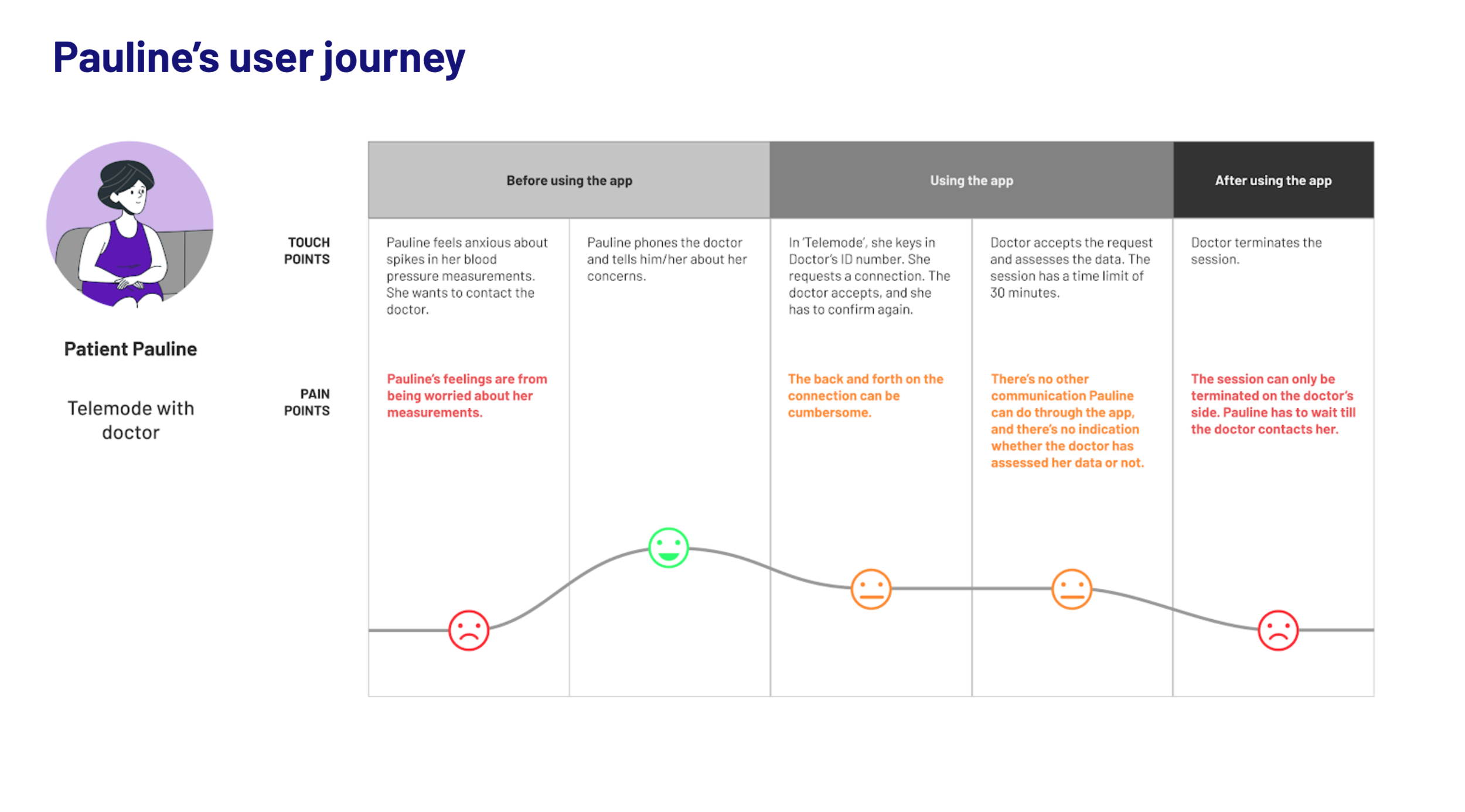



Users’ Problem and Our Solution
Assumptions
Before jumping into our design process, we set some assumptions to help us stay focus on designing the solution.
Device compatibility
Wearables and monitoring devices sold in the market are reliable
Patients’ home monitoring devices are brands or models that are recommended by clinics
Sharing of health data
Patients are advised by their healthcare providers to inform doctors before sharing any medical records
Patients’ shared medical information will be transferred via a secure and encrypted digital platform
Contact list
Patients and doctors can scan QR codes to add each other on the app
Patients will only add trusted people into their contact list on the app
Others
The app will automatically switch users’ statuses to offline mode after 5 minutes of inactivity
Patients are advised by healthcare providers on the acceptable ranges for different types of measurements
New Navigation
App navigation for patients and caregivers
App navigation for doctors and other healthcare professional
New User Flows
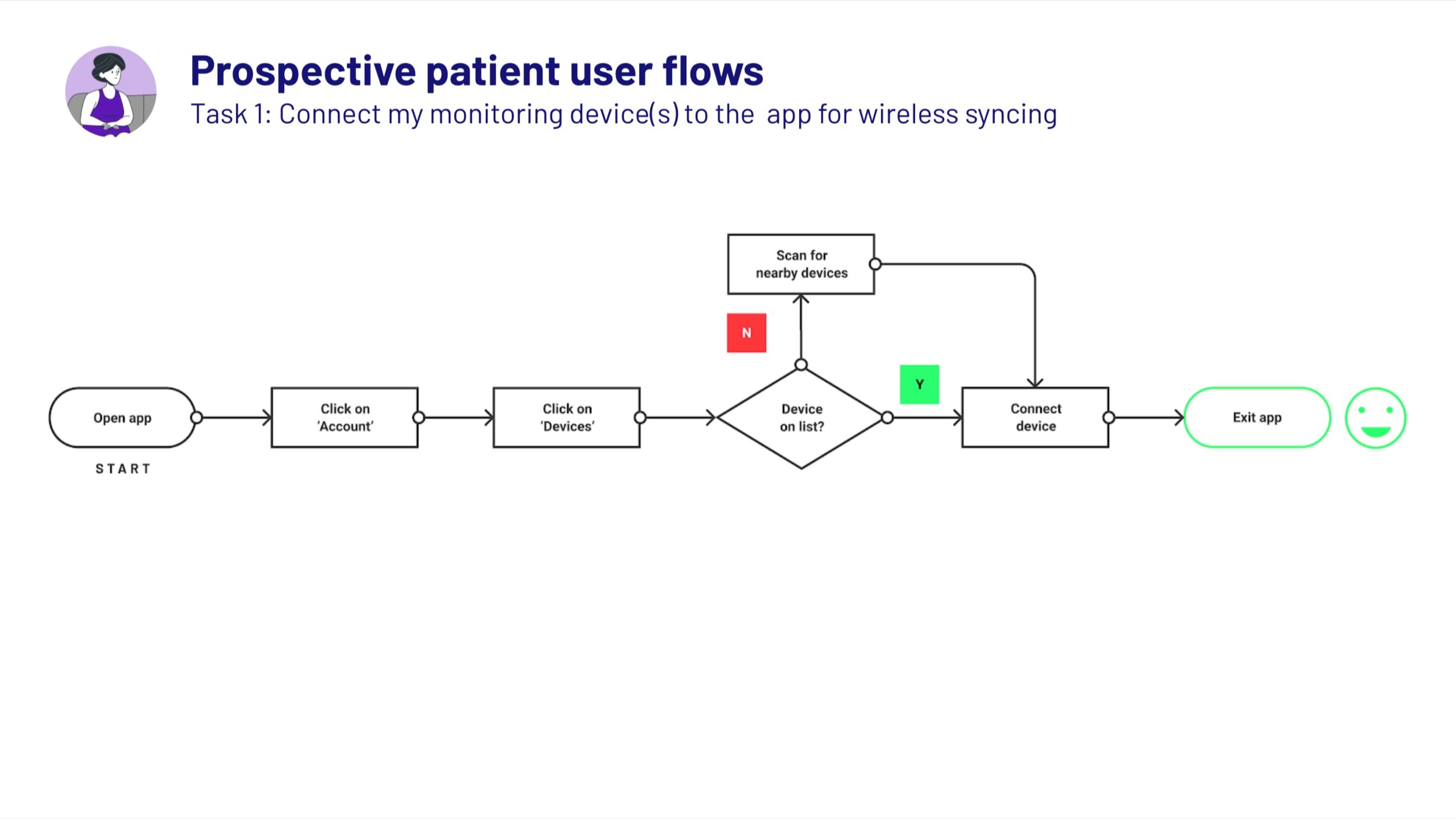
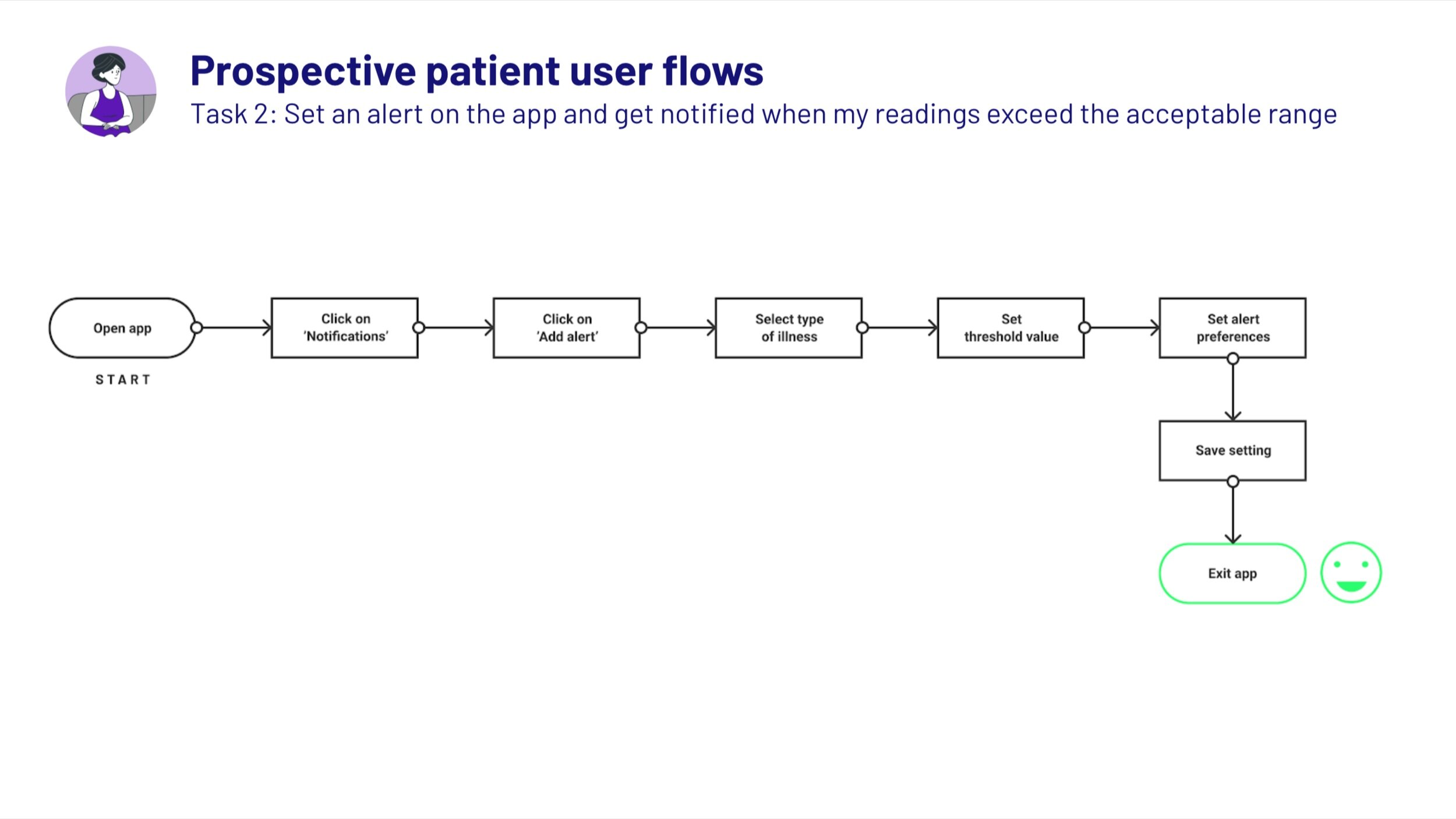
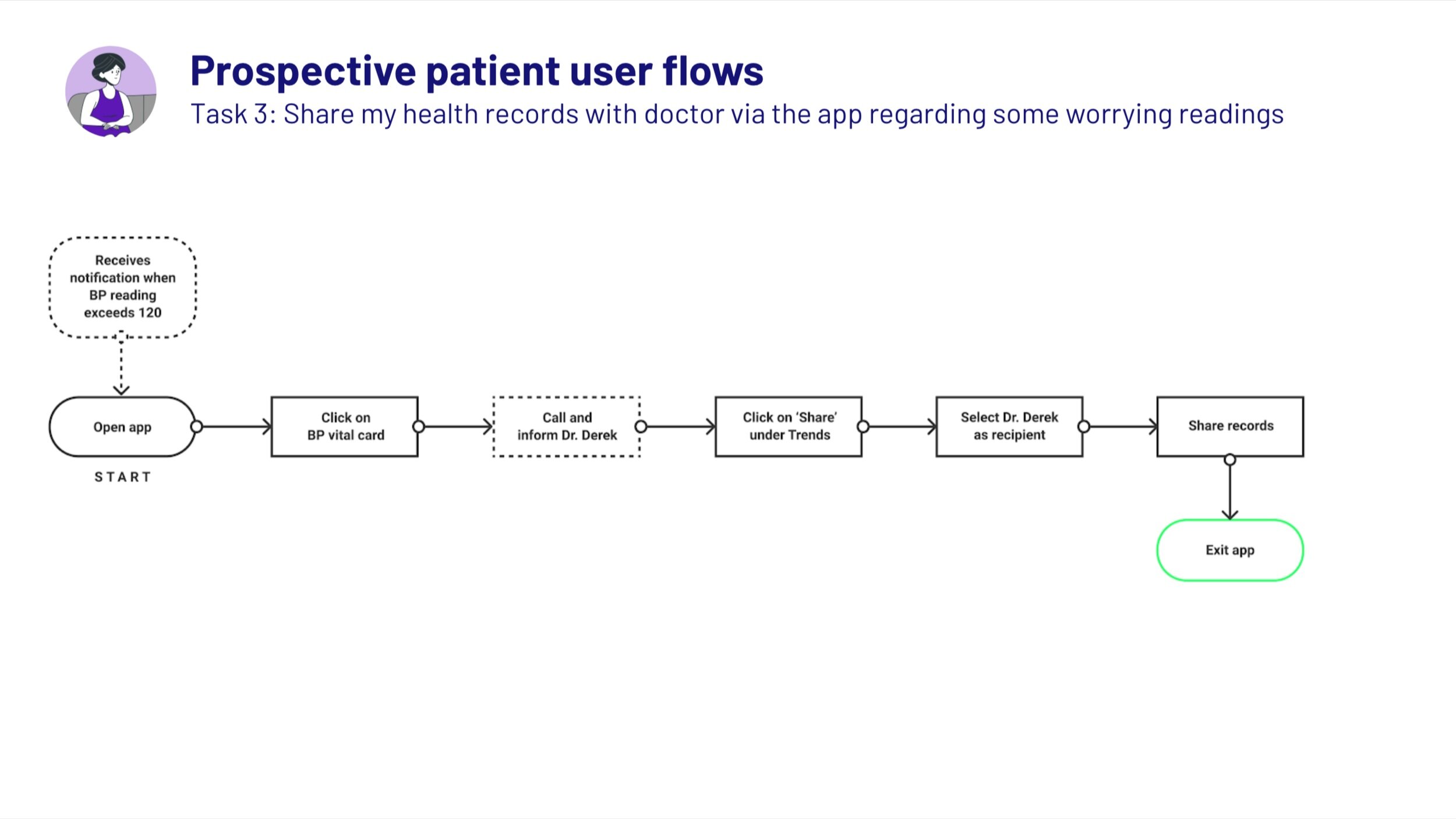
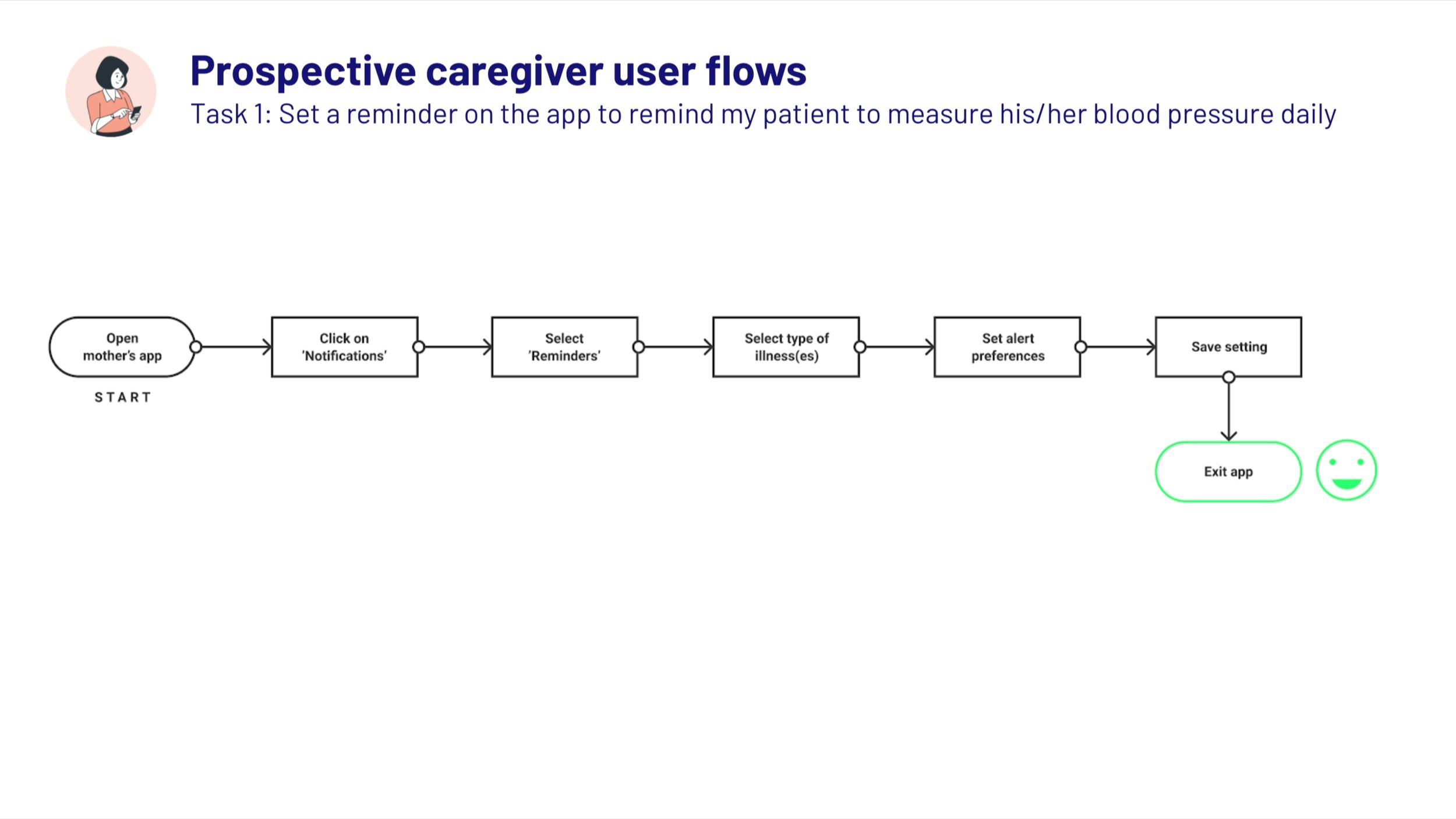
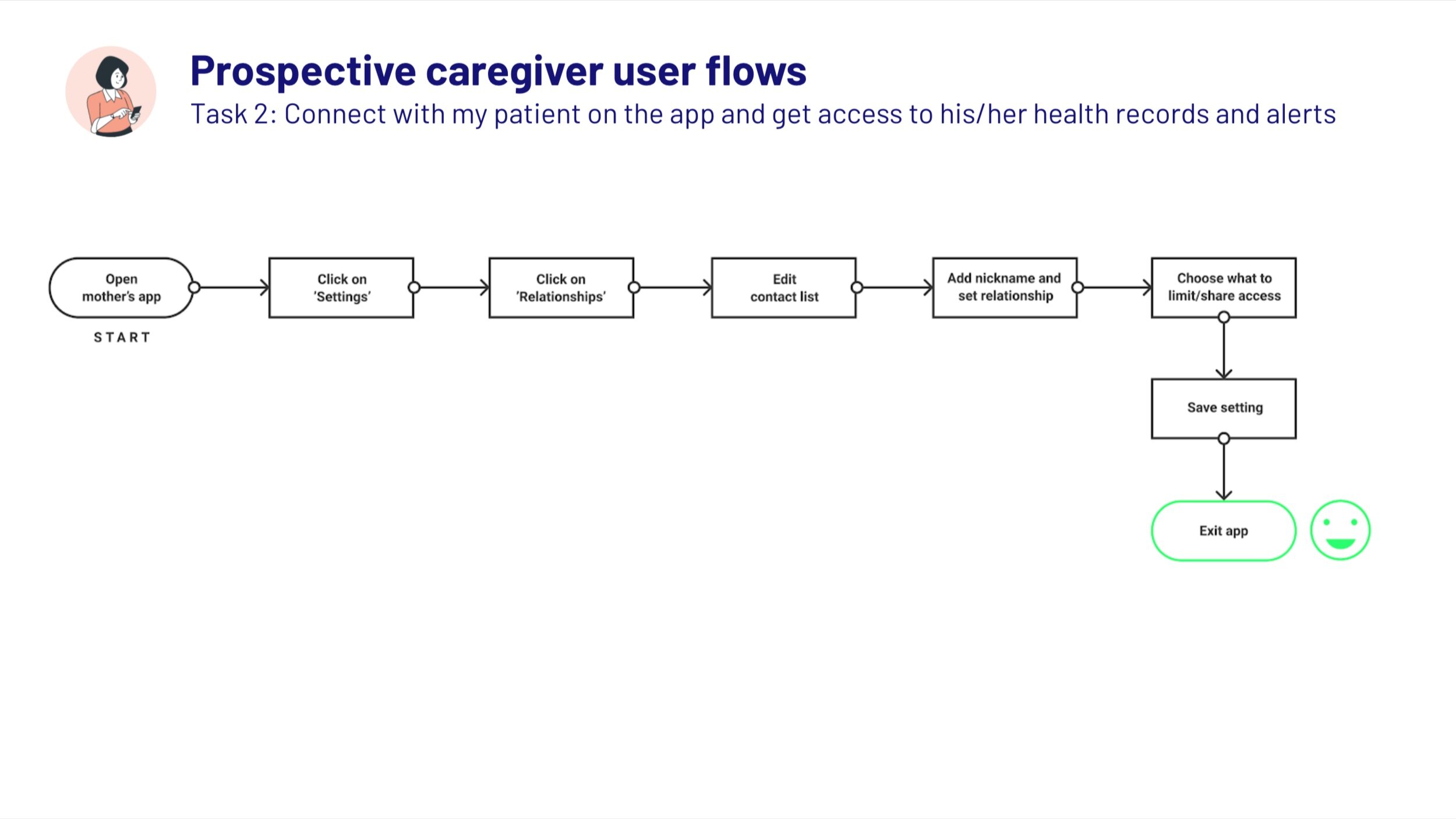
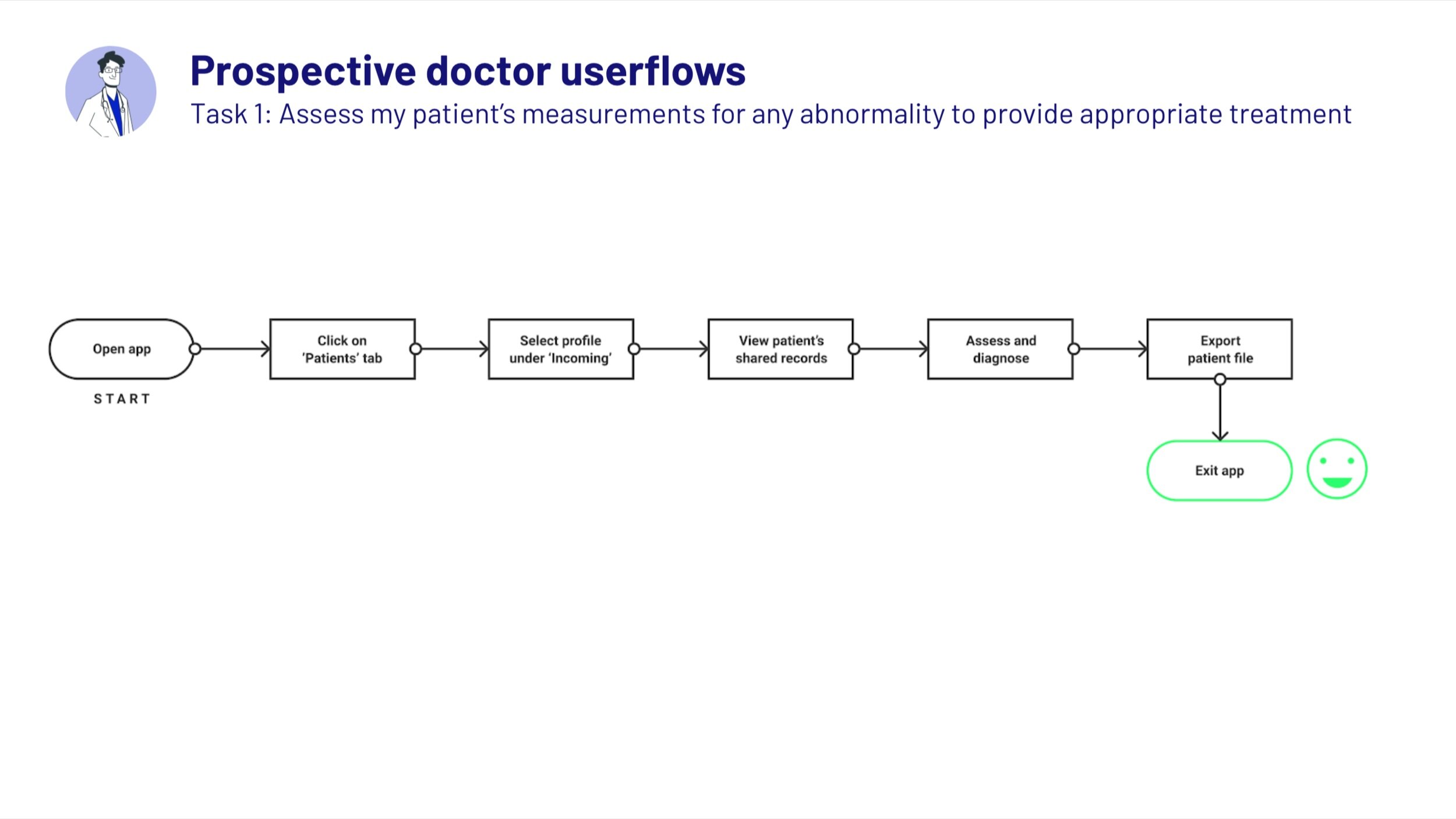
Test with Mid-Fi Prototype
Healthcare Consumer app v1
Scan to view
Doctor App V1
Scan to View
We’ve tested the app with 5 doctors and 5 healthcare consumers with the below tasks:
Users can sync a new device with 0 errors in 3 mins
Users can set an alert with 0 errors in 5 mins
Users can share measurements to Doctor Derek with 0 errors in 5 mins
Users can set a reminder to take their measurements with 0 errors in 5 mins
Users can grant contacts access to their medical information and alerts on the app with 0 errors in 8 mins
Doctors can check patients’ measurements for any irregular trend before deciding if there is a need to change their care plans with 0 errors in 5 mins
Usability Insights




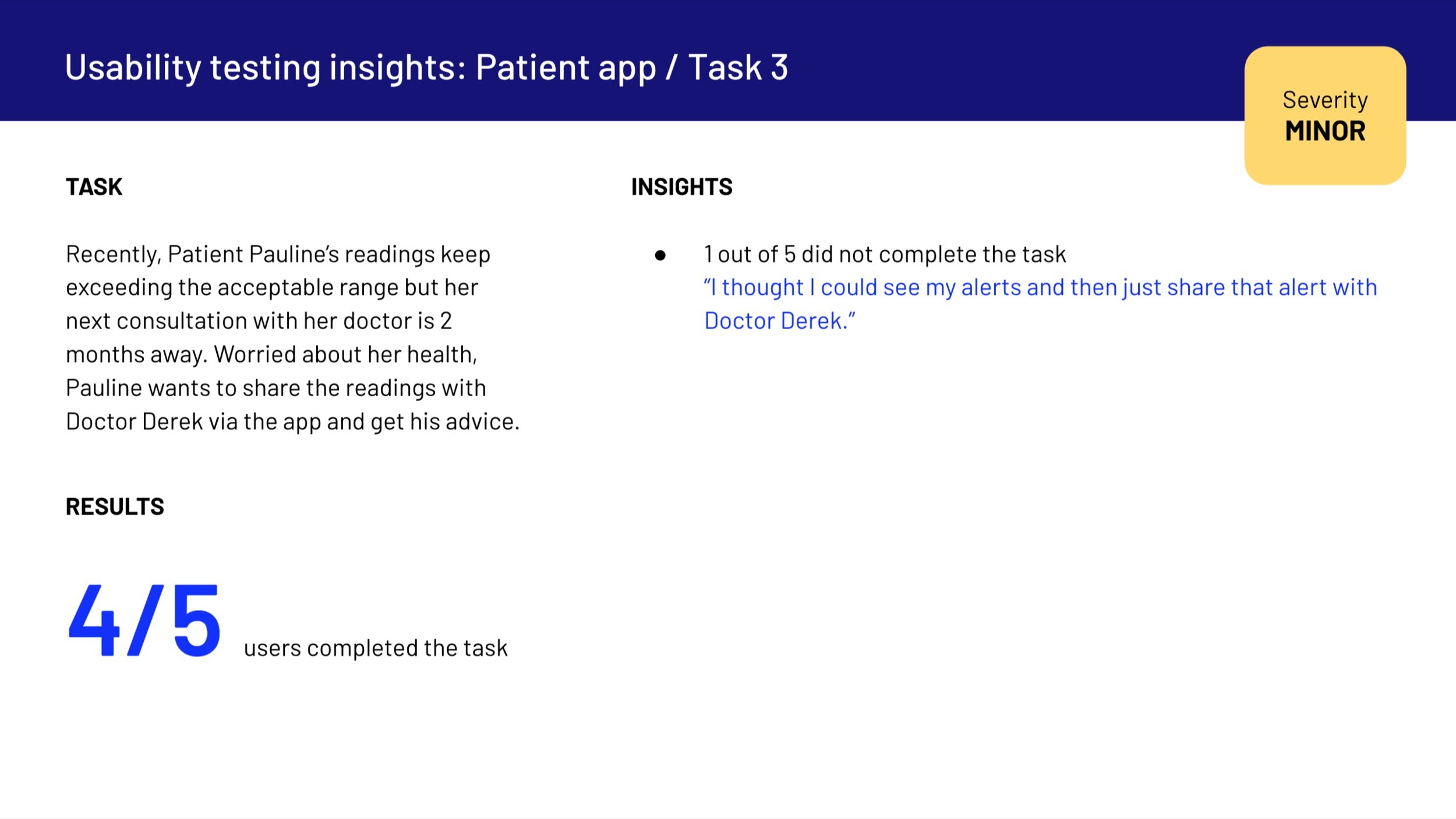
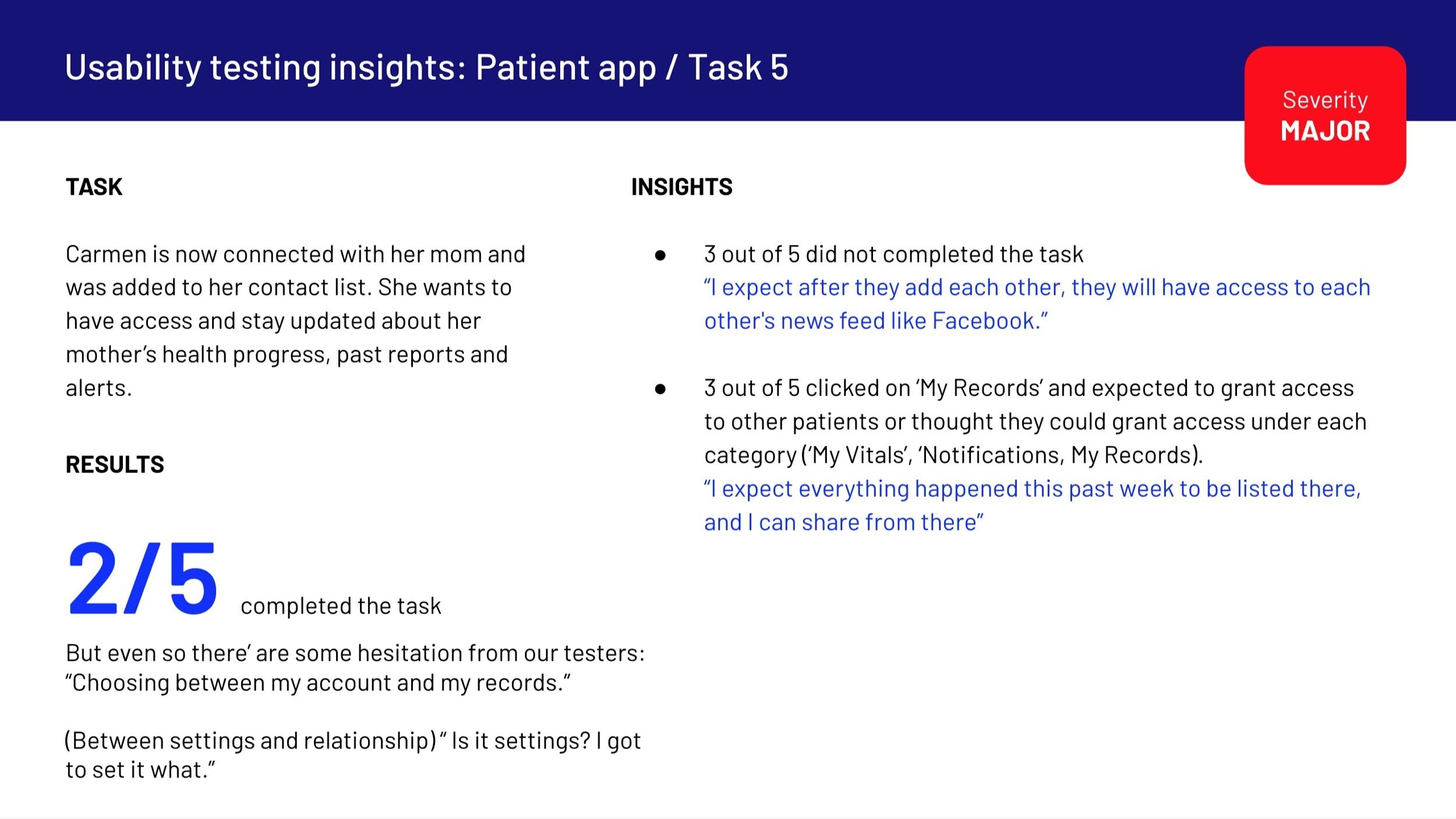

Next Step
Doctors App
Dashboard redesign
Full UI development
Complete design of patient profile to give doctor
a full picture of patient's’ condition/backgroundInclude a ‘Terminate session’ button
Add more parameters
(recent weight, height, BMI and temperature)
Healthcare Consumer App
Content strategy
Change ‘Relationships’ to ‘Contacts’
Task 3: Refine popup copy
Navigation
Separate ‘Settings’ from ‘Accounts
Bring out the feature on the dashboard instead of categorizing it under ‘Account’
Separate ‘Notifications’ with ‘Alerts and Reminders’
Flow
Reiterate Tasks 3 and 5 flows
Navigation 2.0
App navigation re-design for patients and caregivers
App navigation re-design for doctors
Adding Content and UI Direction


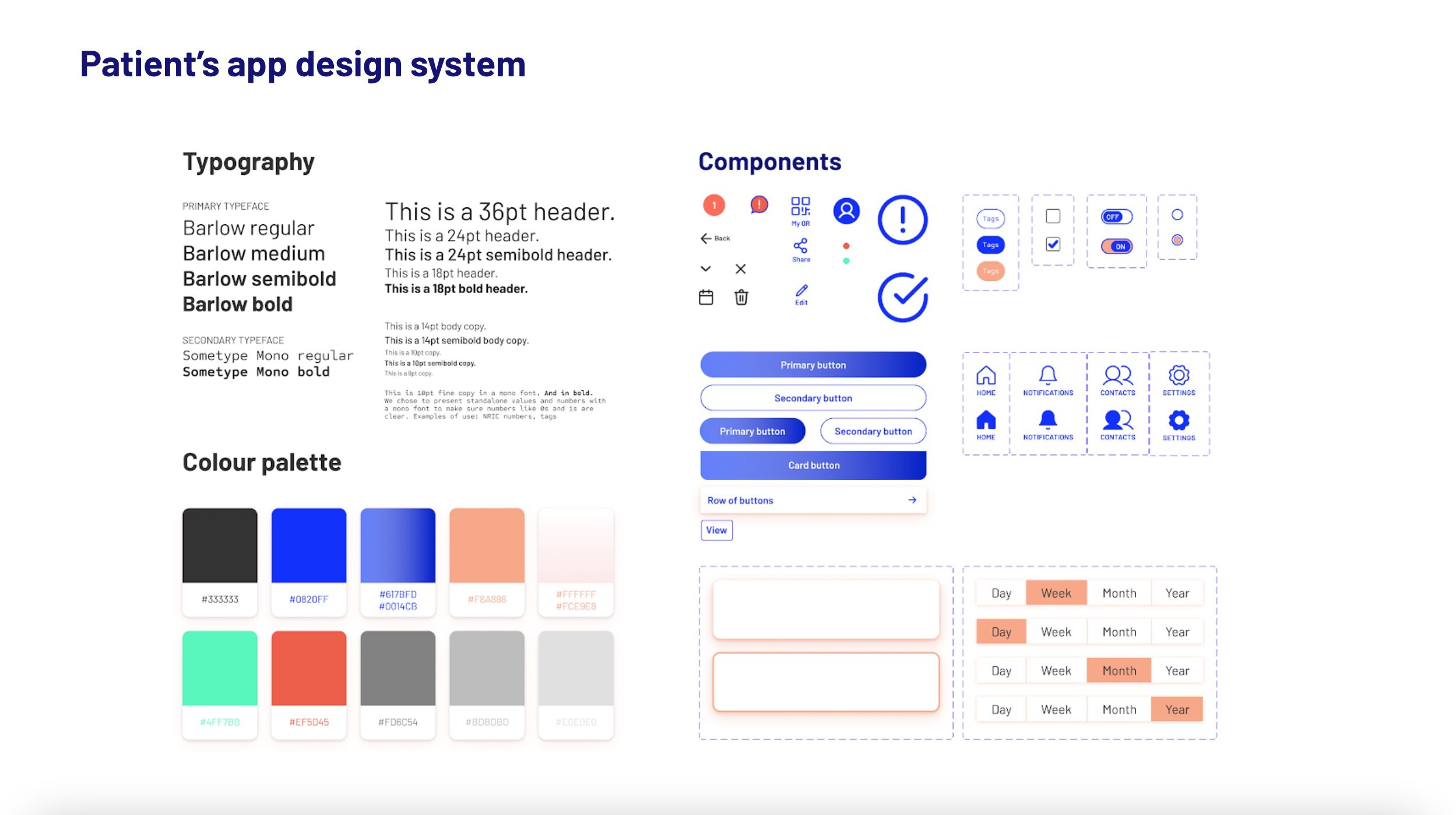
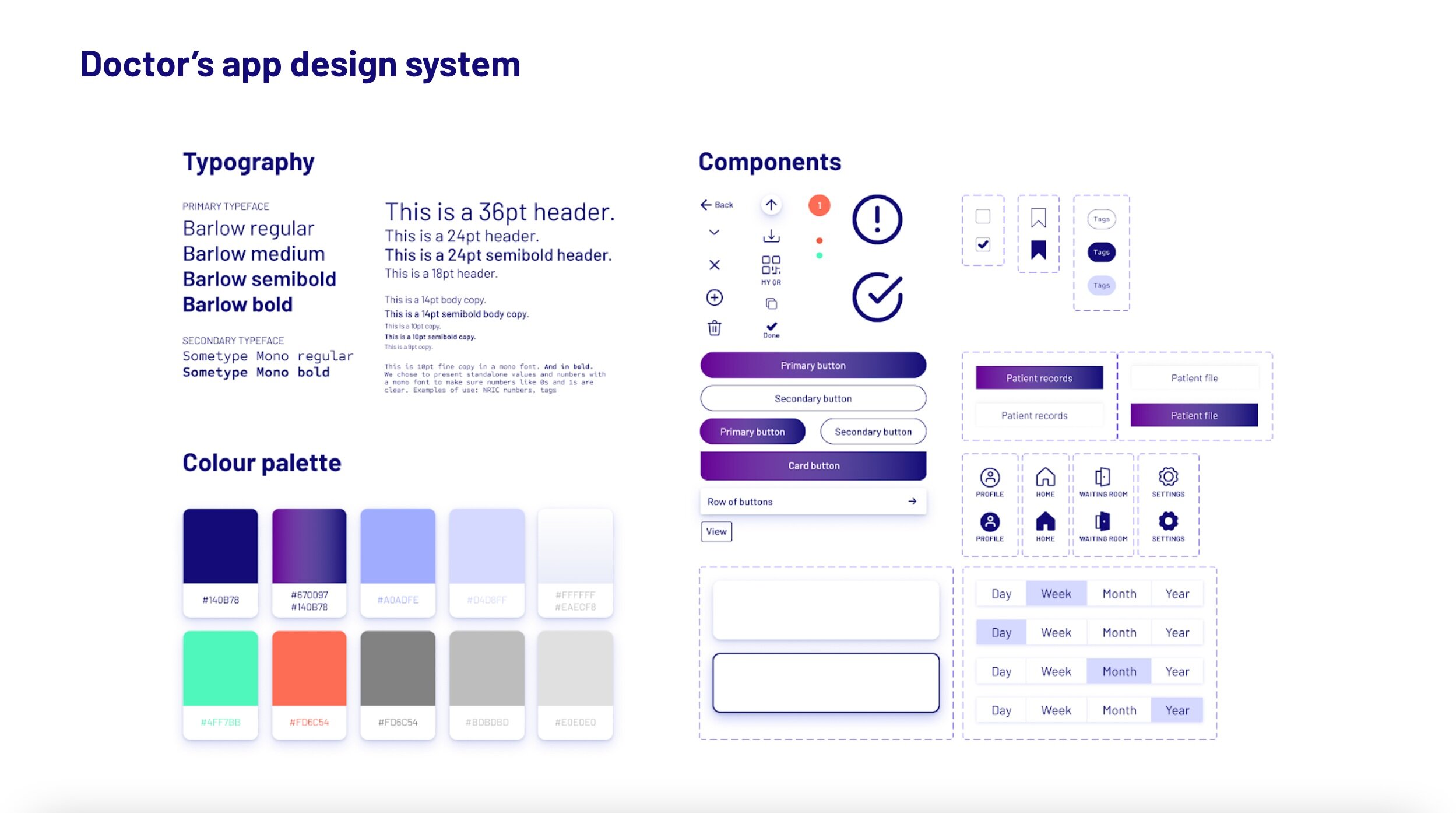
Wireflow 2.0






What did the client say?
This team organised and conducted their user interviews efficiently, and their subsequent user analysis provided us with behavioural insights we had not previously considered. This analysis would not have been possible without dedicated research done into the medical industry, as well as into more specific related products. They were able to iterate on their prototypes quickly based on our feedback, and were not afraid to overhaul entire components whenever necessary.
Try out our latest prototype!
Healthcare Consumer Prototype V.2
Doctor Prototype V.2

















